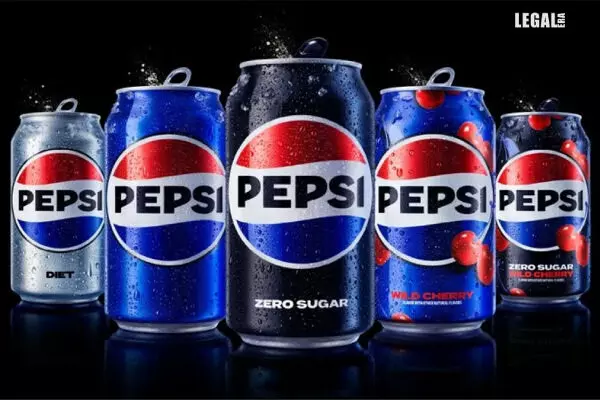- Home
- News
- Articles+
- Aerospace
- Agriculture
- Alternate Dispute Resolution
- Banking and Finance
- Bankruptcy
- Book Review
- Bribery & Corruption
- Commercial Litigation
- Competition Law
- Conference Reports
- Consumer Products
- Contract
- Corporate Governance
- Corporate Law
- Covid-19
- Cryptocurrency
- Cybersecurity
- Data Protection
- Defence
- Digital Economy
- E-commerce
- Employment Law
- Energy and Natural Resources
- Entertainment and Sports Law
- Environmental Law
- FDI
- Food and Beverage
- Health Care
- IBC Diaries
- Insurance Law
- Intellectual Property
- International Law
- Know the Law
- Labour Laws
- Litigation
- Litigation Funding
- Manufacturing
- Mergers & Acquisitions
- NFTs
- Privacy
- Private Equity
- Project Finance
- Real Estate
- Risk and Compliance
- Technology Media and Telecom
- Tributes
- Zoom In
- Take On Board
- In Focus
- Law & Policy and Regulation
- IP & Tech Era
- Viewpoint
- Arbitration & Mediation
- Tax
- Student Corner
- AI
- ESG
- Gaming
- Inclusion & Diversity
- Law Firms
- In-House
- Rankings
- E-Magazine
- Legal Era TV
- Events
- News
- Articles
- Aerospace
- Agriculture
- Alternate Dispute Resolution
- Banking and Finance
- Bankruptcy
- Book Review
- Bribery & Corruption
- Commercial Litigation
- Competition Law
- Conference Reports
- Consumer Products
- Contract
- Corporate Governance
- Corporate Law
- Covid-19
- Cryptocurrency
- Cybersecurity
- Data Protection
- Defence
- Digital Economy
- E-commerce
- Employment Law
- Energy and Natural Resources
- Entertainment and Sports Law
- Environmental Law
- FDI
- Food and Beverage
- Health Care
- IBC Diaries
- Insurance Law
- Intellectual Property
- International Law
- Know the Law
- Labour Laws
- Litigation
- Litigation Funding
- Manufacturing
- Mergers & Acquisitions
- NFTs
- Privacy
- Private Equity
- Project Finance
- Real Estate
- Risk and Compliance
- Technology Media and Telecom
- Tributes
- Zoom In
- Take On Board
- In Focus
- Law & Policy and Regulation
- IP & Tech Era
- Viewpoint
- Arbitration & Mediation
- Tax
- Student Corner
- AI
- ESG
- Gaming
- Inclusion & Diversity
- Law Firms
- In-House
- Rankings
- E-Magazine
- Legal Era TV
- Events
US District Court Judge Casey Pitts Rules PepsiCo Could Be Sued For Gatorade Protein Bars Health Claims

US District Court Judge Casey Pitts Rules PepsiCo Could Be Sued For Gatorade Protein Bars Health Claims
All protein bars are not equal in nutritional benefits
The US District Court, Northern District of California has held that three self-described fitness enthusiasts leading a proposed class action have alleged that the marketing and labeling of PepsiCo was deceptive.
District Judge Casey Pitts stated that PepsiCo could be sued for marketing its Gatorade protein bars as good, though they have more sugar than protein and more sugar than typical candy bars.
In September last, PepsiCo was accused of violating federal and state consumer protection laws by creating a “health halo” around Gatorade bars, including assurances that they “help rebuild muscles”, are "used by the pros" and are "backed by science."
The lawsuit claimed that the bars were, "fortified junk food" with 29 grams of sugar, including 28-grams of added sugar. This was more than the American Heart Association recommendation of a 25-gram daily limit for women and 20-grams of protein.
The plaintiffs complained that consumption of added sugar was linked to high rates of obesity, diabetes and cardiovascular disease. They remarked not buying Gatorade bars or might have paid less if they had understood the nutritional character of the product., and sought unspecified damages.
However, PepsiCo termed the deception claims "implausible" because it did not market the bars as healthy or low in sugar, especially for Chocolate Chip and Cookies and Cream flavors.
Meanwhile, the judge stated that consumers might be unable to readily interpret the sugar content on labels and be misled by the company’s "self-proclaimed science-backed claims."
He added that PepsiCo could make health and protein content claims consistent with federal regulations. For instance: the Food and Drug Administration did not consider sugar a "disqualifying ingredient" when making health claims.
The lawyer for the plaintiffs, Maia Kats welcomed the decision and said they would pursue the claims.
PepsiCo is based in Purchase, New York. Its brands include Fritos, Lay's, Mountain Dew and Ocean Spray.



